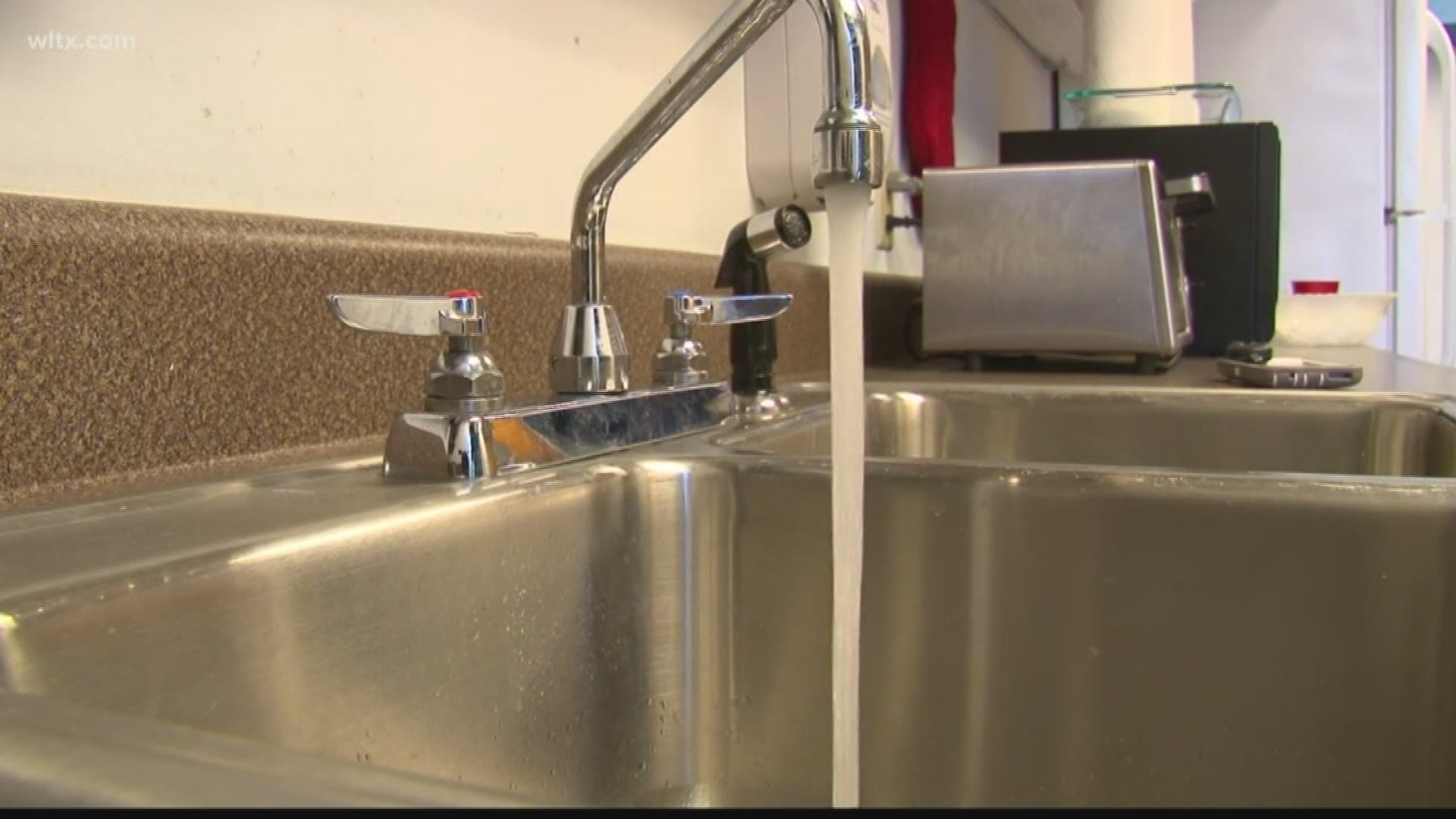COLUMBIA, S.C. — In September, Blue Granite Water Company filed a case to increase rates on its approximately 30,000 customers in 16 counties across South Carolina.
But, Lexington State Representative Chris Wooten, (R) Lexington, has doubts.
“To me, the rate-payer, the customer, has been paying those rates for the last 50 years in good faith that this would be taken care of along the way, not wait till it's all falling, so where has the money gone? To me it's just another mismanagement of funds from a high utility company and that mismanagement of funds, now who's it going to fall back to? The rate-payer,” Wooten said.
Wooten said he worked with other state representative to create town halls for customers.
The Lexington representative continued, saying he had heard from many constituents concerned about their ability to pay the new rate, if approved.
“[Blue Granite] has not been denied a rate hike or rate increase since 2004, so for them to ask for another 50 percent on the utilities, is to me, insane,” Wooten added.
The Office of Regulatory Staff said the proposed increases amount to a 45 percent increase for water and a 56 percent increase for sewer, which is something Lexington-area customer Johnny Cribb claimed would be difficult to pay.
“Someone like myself, that's a retired law enforcement officer, I have an earning cap cause of the way I retired. My mother lives with us and all she has is a small amount of social security and that's really for herself. If it's putting a strain on me, just think of what it's doing to a single house income,” Cribb said.
He claimed he usually pays about $200 on water and sewer, so the proposed increase would bring him closer to $300.
Cribb added customers in his area and others across the state only had the option to tap into expensive utilities or dig their own wells, another expensive cost in his opinion.
In a 7-page document explaining the proposal, Blue Granite said in part, "The proposed rate increase consists primarily of third-party cost increases in which Blue Granite has no control. Purchased services expenses are incurred from bulk water suppliers and wastewater treatment suppliers.”
The company also said it had invested $23 million in infrastructure already and was planning on another $17 million in each of the next two years, which the company emphasized was a result of rate-payer payments.
Carri Grube Lybarker with the state's Department of Consumer Affairs said they filed a petition to intervene after attending a town hall with customers.
“For us, the amount of the increase in and of itself and also the lack of quality service or seeming quality service to folks that we heard of at the town hall,” Lybarker said.
Lybarker, who’s Department regained the ability to intervene in utility cases last year, said they heard complaints about drinking water quality and water availability from customers during the town hall.
However, Lybarker declined to give a set goal from her Department, saying the case and its evidence were being reviewed by the Department’s hired experts.
The South Carolina Department of Consumer Affairs originally had the power to intervene in utility rate cases from 1978 to 2004, but then was returned the power in July of 2018, according to Lybarker.
In recent years, utility rate cases featuring the state's electric companies have garnered intense scrutiny and input from lawmakers and other stakeholders.
The Blue Granite case is likely to be decided in March of 2020.

